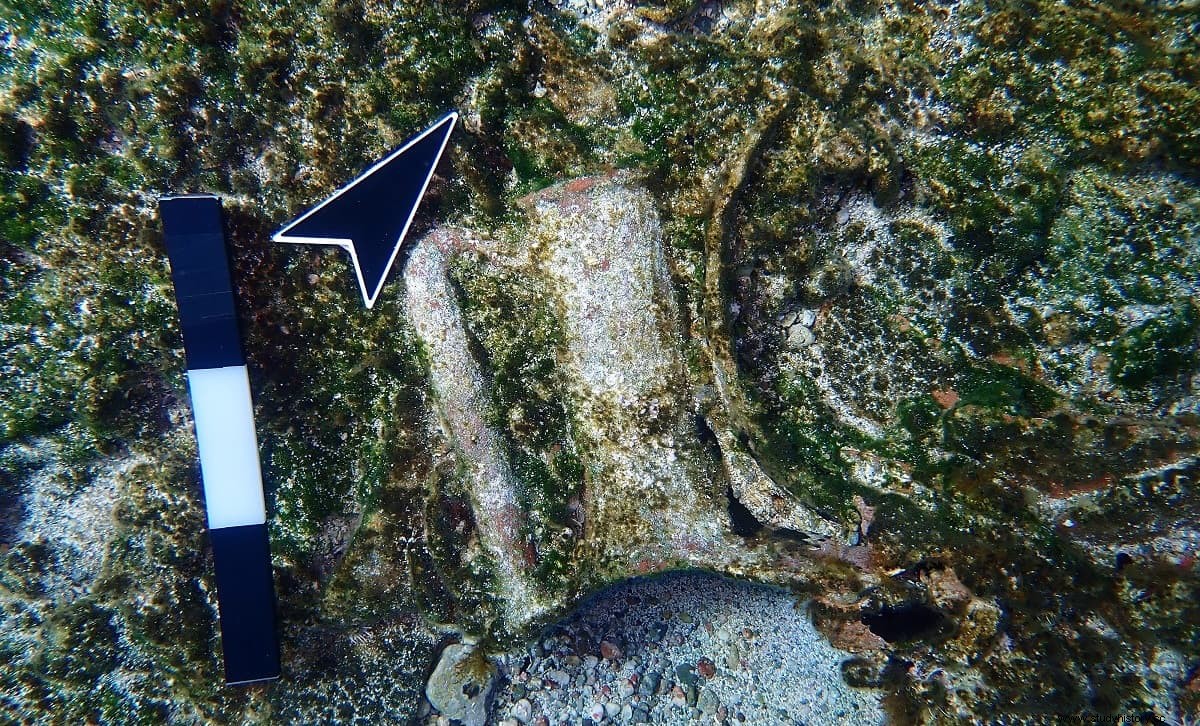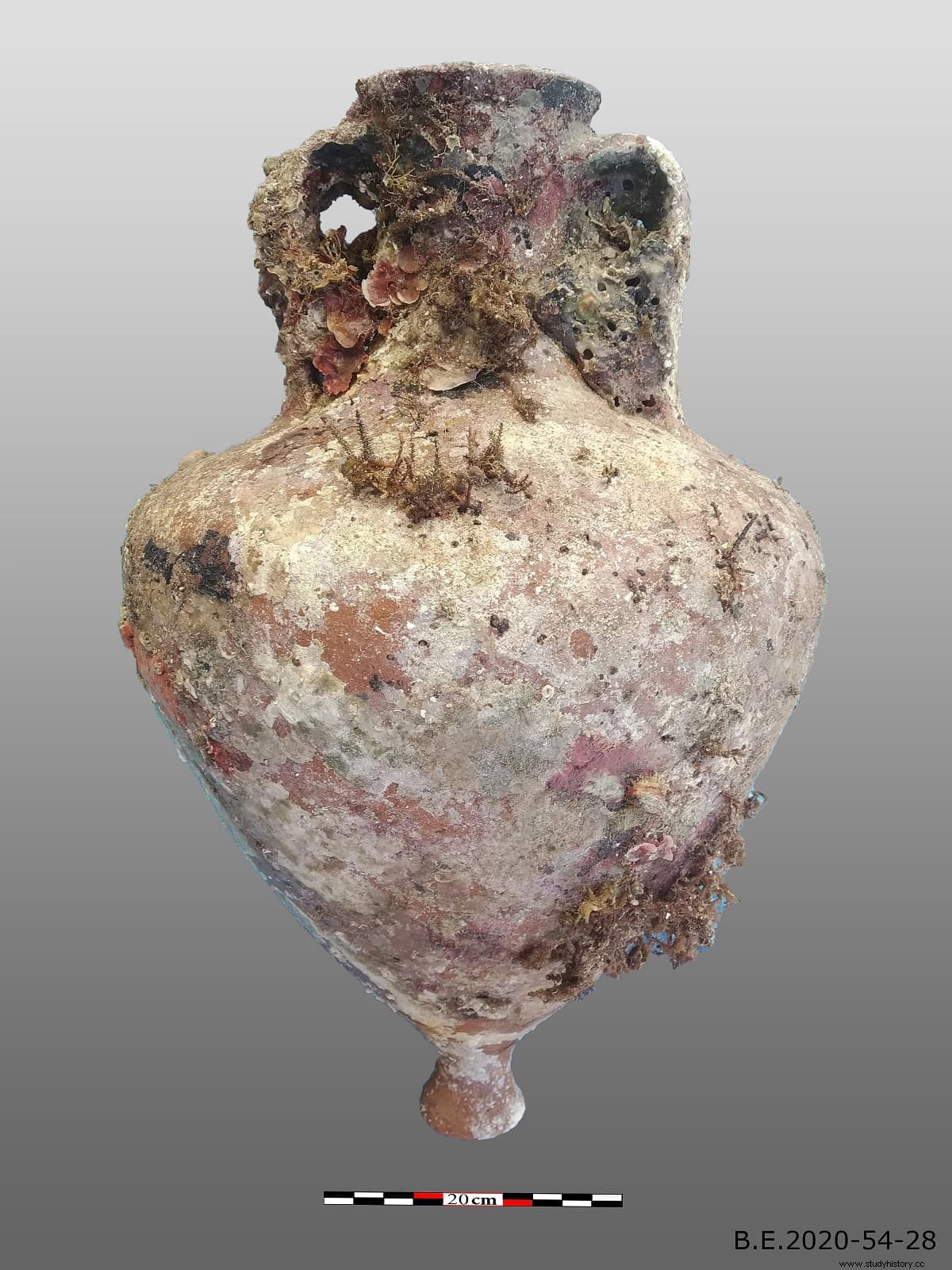Off the coast of Kasos Island, east of Crete in the Dodecanese, archaeologists found several ancient shipwrecks, including a Roman ship from the 2nd to 3rd centuries AD. whose cargo consisted of oil amphorae from ceramic workshops in the Iberian Peninsula.
The amphorae were made in workshops around the Guadalquivir, and date from between the 1st and 3rd centuries AD. Along with them, amphorae from workshops in present-day Tunisia were also found, which are a little later, from between the 2nd and 3rd centuries AD.

Underwater surveys also found three other wrecks, including one containing amphorae produced in the North Aegean during the Hellenistic period (1st century BC), and one containing Classical period amphorae (5th century BC) produced in ancient Mendi, a city of Chalkidiki.
The findings came during the second underwater research mission carried out in September and October by the Underwater Antiquities Officer of the Greek Ministry of Culture, in collaboration with the Historical Research Institute of the National Research Foundation.

According to the Ministry of Culture, remote Kasos was a crossroads of civilizations, but also an important center of navigation from ancient times to the present day .

Twenty-three technicians and scientists specialized in various fields carried out more than 100 group dives, exploring the seabed for more than 200 hours and inspecting most of the area, in a three-year project (2019-2021).
The island of Kasos is mentioned by Homer in the Catalogue of ships of the Iliad, its inhabitants participating in the Trojan War. Then it belonged to the Delian League, being an ally and tributary of Athens until 415 BC. After changing hands numerous times throughout history, in 1947 it was incorporated into the modern Greek state.
